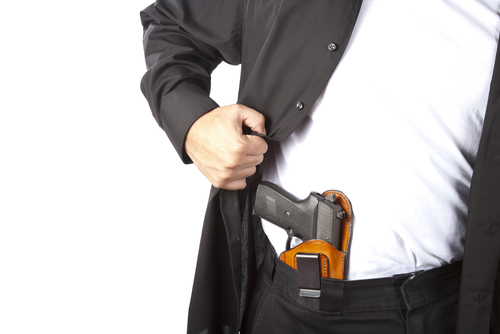Crimes that cannot be expunged in Pennsylvania include violent crimes and sexual offenses, among others. When the courts expunge a conviction or charge, the court is removing it from the record or sealing the record from the public.
The state of Pennsylvania and the Montgomery County courts will also not seal records based on your criminal history. When determining record expungement, courts will consider:
- When your last conviction was
- How many convictions you have
- The frequency of convictions
- If you have a felony
Serious crimes, such as felonies, are often not eligible for expungement. A lawyer must first file for a pardon. A pardon is a symbol of forgiveness from the court that exempts an individual from punishment. It does not have anything to do with the person’s innocence.
Crimes Ineligible for Expungement
Some misdemeanors involving firearms or violence cannot be removed from an individual’s record. Most of these crimes carry a minimum sentence of two or more years in prison. Assault, kidnapping, sexual offenses, and crimes involving minors typically have longer sentences and are ineligible for expungement, according to Act 56 – PA General Assembly.
Even if you have a conviction that is eligible for expungement, your personal history can disqualify it. The court will not seal misdemeanors if you:
- Had a conviction within the last decade
- Had a first-degree felony conviction
- Have two or more first-degree misdemeanors or felonies within the last 15 years
- Have four or more convictions in the last 20 years
However, the Clean Slate Act states that certain misdemeanors that previously did not qualify for expungement are now eligible. The court will now seal some first-degree misdemeanors and simple assault crimes that are second- or third-degree misdemeanors.
Crimes that are eligible for expungement include the following:
- First-degree misdemeanors with incarceration punishments of less than two years
- Second-degree misdemeanors
- Third-degree misdemeanors
You can also expunge charges that never lead to a conviction. Arrests and charges can still show up on your background check unless you petition for expungement. Employers and landlords might still judge your trustworthiness if they find an arrest, even if the court dropped the charges.
A clean record can be beneficial for job and housing opportunities and obtaining professional licenses from the state. If you are returning to college, a criminal record can disqualify you from grants and other financial assistance.
What Can Get in the Way of an Expungement
Even if a crime qualifies for the expungement process, other factors can impede the court order. For instance, the court will not expunge your record if you have outstanding court fines and costs.
You must not have received a conviction within a certain period following completion of your sentencing. For example, you must wait 10 years to file for expungement of first-degree misdemeanors with less than two years of incarceration as punishment.
A felony is only eligible for being expunged once the Board of Pardons and the Governor pardon it. Your record becomes eligible for parole sometime after your punishment is complete and you have paid your fines. You cannot apply for expungement while you are still incarcerated for the crime.
For example, the Pennsylvania Board of Pardons updated the process for non-violent convictions and crimes for possession of small amounts of marijuana and paraphernalia. The waiting period was reduced from a few years to months.
Pardons can also restore some of the rights you lost because of the felony conviction. For instance, you can regain your right:
- To vote
- To hold public office
- To serve on a jury
- To possess firearms
- To stay in the country, as some convictions are deportable offenses
The state will seal non-violent misdemeanors after 10 years. Pennsylvania courts will also seal the records of individuals 70 years of age or older and who have not received a conviction in the last 10 years. However, a lawyer can petition for an earlier expungement.
You can also request an expungement for a conviction of a deceased person. You may want to keep the criminal records of loved ones hidden for privacy’s sake. Three years after the subject of the record passes, you can file to expunge eligible convictions from their criminal record.
The expungement process can be long and difficult if you are inexperienced with the court system. David McKenzie is a former prosecutor who can work on your behalf to erase, seal, and expunge past convictions. To find out if you can erase convictions from your criminal record, call McKenzie Law Firm today at (610) 991-7219.



